Key details of Jeffrey Epstein’s final days revealed in trove of 4000 pages of prison documents
A trove of 4000 pages of prison documents have shed new light on the final days of sex trafficker Jeffrey Epstein.
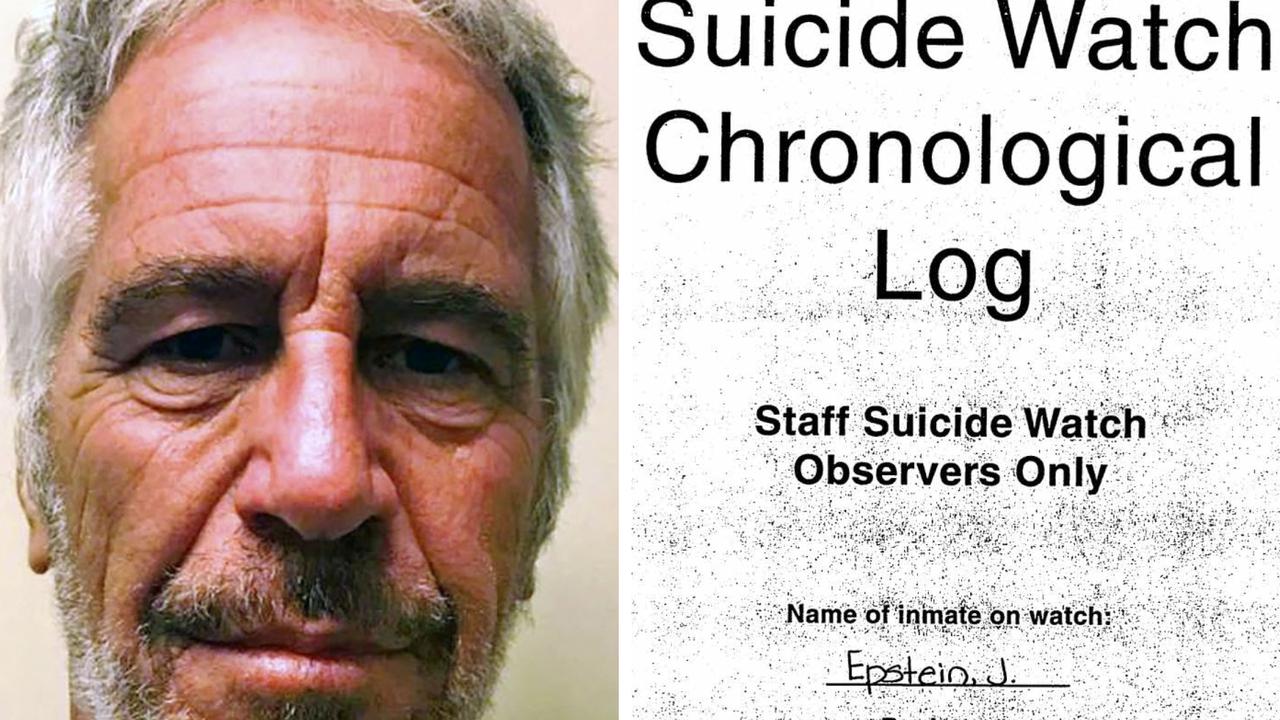
Days before Jeffrey Epstein died by suicide, the wealthy paedophile sat crouched in a corner of his Manhattan jail cell, covering his ears — tormented and sleep-deprived from the incessant hiss of a broken toilet.
The pitiful description of the once-powerful, Brooklyn-born financier at his psychological breaking point was revealed in a trove of new prison records published on Thursday, the NY Post reports.
A total of 4000 pages of Bureau of Prisons documents shed light on the disgraced hedge fund honcho’s tortured final weeks behind bars, his mindset and bizarre behaviour leading up to his death.
They also tell the story of his sexual history and possible relationship with paedophile former US gymnastics team doctor Larry Nassar, along with correction officials’ frantic response to his suicide.
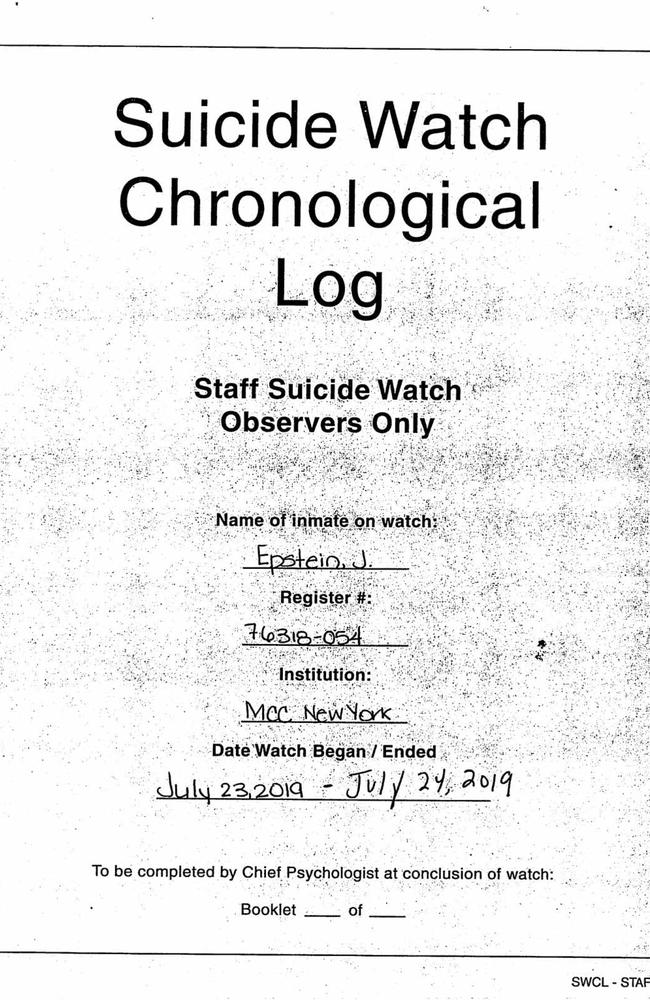
Epstein stood accused of abusing scores of underaged girls in New York, Florida and US Virgin Islands — using his deep pockets and influential pals to dodge consequences for decades.
The prolific pervert ran an elaborate sex ring, paying people to recruit minors, with the help of his former lover and convicted sex-trafficker Ghislaine Maxwell, according to prosecutors.
While awaiting his federal sex trafficking trial in Manhattan, the sex offender — whose powerful pals included Prince Andrew, Donald Trump and Bill Clinton — died on August 10, 2019, sparking a slew of conspiracy theories.
The new records, obtained by the Associated Press, offer new revelations about one of America’s most notorious sex offenders.
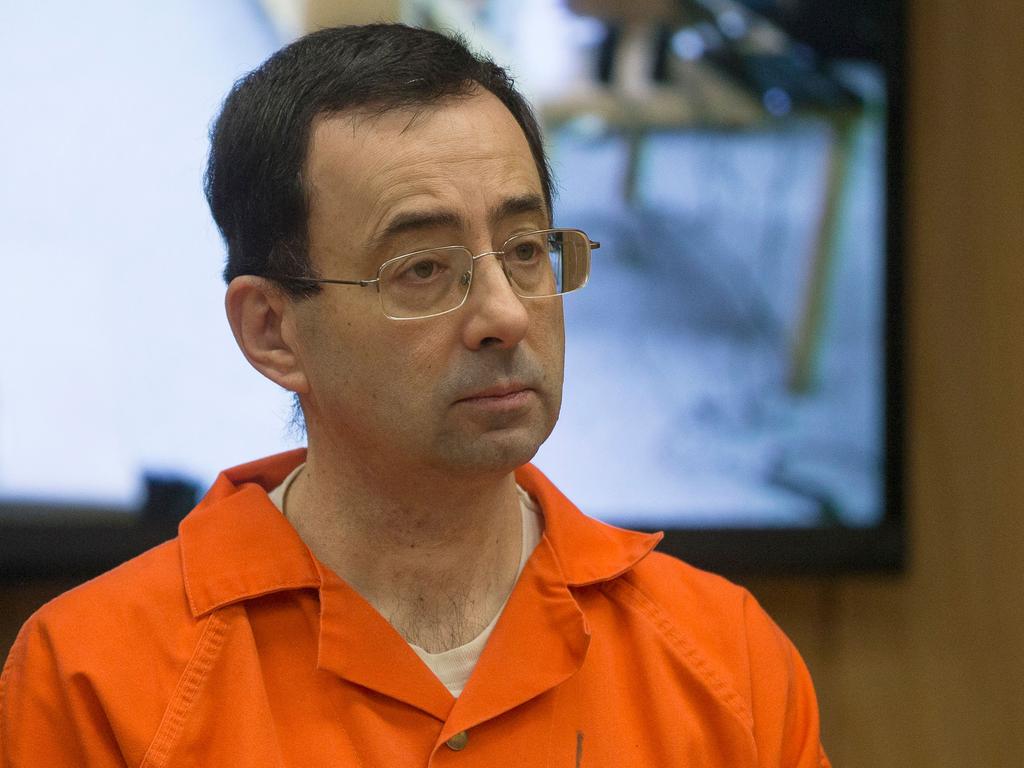
Letter to Nassar
Not long before he died behind bars, Epstein wrote a letter to fellow high-profile paedophile Nassar — but the disgraced former doctor never got the note, according to the records.
Epstein’s unopened letter to Nassar — whose position in sports medicine helped him prey on young female athletes for decades — was discovered in the mail room of the now-shuttered jail weeks after his suicide. It was stamped “return to sender” for unknown reasons.
“It appeared he mailed it out and it was returned back to him,” an investigator who found the letter told a prison official in an email. “I am not sure if I should open it or should we hand it over to anyone?”
The note itself was not among the documents turned over to the AP in the records request.
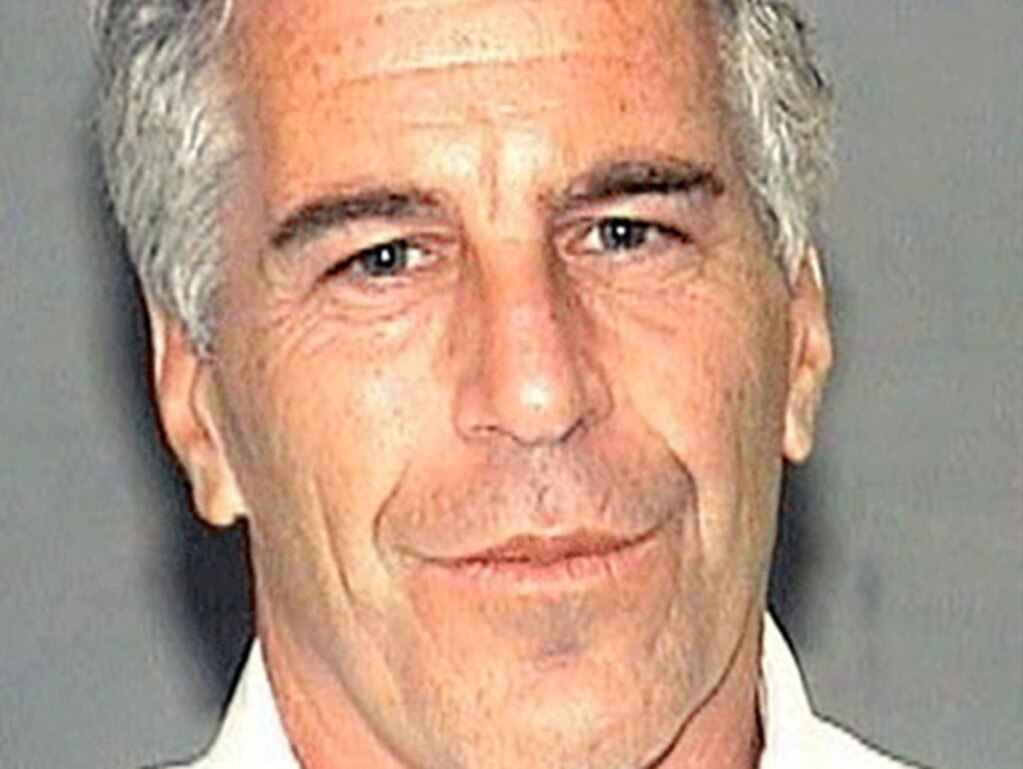
Sexual history and health
On July 6, 2019, as Epstein was booked into the Metropolitan Correctional Center, a health screening revealed he’d had “10-plus female sexual partners” in the past five years, according to the prison documents. He also admitted he’d been previously treated for chlamydia.
Along with the past STD, he currently suffered from sleep apnoea, constipation, high blood pressure and prediabetes, according to the medical records.
A psychological intake report, used to gauge whether he was likely to be a sexual predator behind bars, also notes Epstein has, “No history of sexual predation in a correctional setting.”
Records also state, inaccurately, that he had “no sexual offence convictions” — though he pleaded guilty in Florida to procuring a minor for prostitution in a 2008 sweetheart deal.
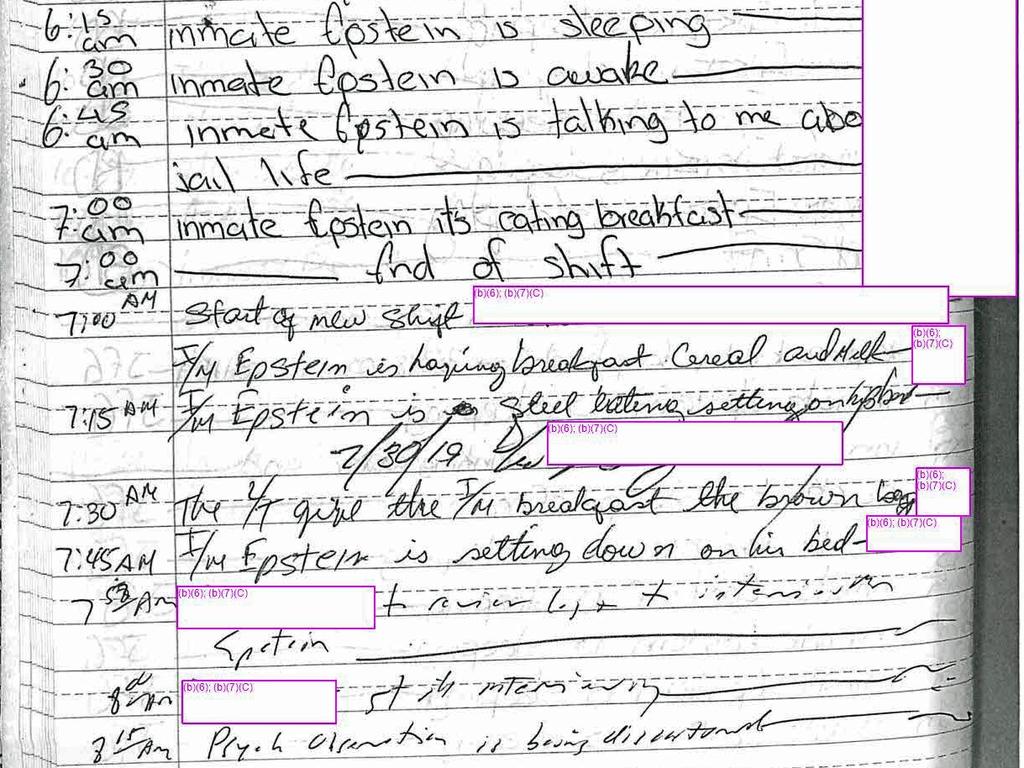
‘Cowardly’ mental state
During his 36-day stint at the lower Manhattan lockup, Epstein called himself a “coward” and whined that he was struggling to adapt to life as an inmate, according to prison records.
He griped about being forced to wear an orange jumpsuit like a “bad guy” and repeatedly asked if he could wear a brown uniform during visits with his attorneys.
Less than 22 hours after arriving at the jail, Epstein was removed from the general population due to “media coverage and awareness of his notoriety among the inmate population”, according to the psychological reconstruction of his death.
At first, he apparently adapted well to life behind bars, requesting permission to exercise outside and signing up for a Kosher meal plan.
But the likelihood that his looming sex-trafficking trial — in which he faced up to 45 years in prison — would damage his social status sent him spiralling into a depressive state, officials wrote.
His lack of interpersonal connections in jail and the “idea of potentially spending his life in prison were likely factors contributing to Mr Epstein’s suicide”, according to the records.
The financier’s mental state took a turn for the worse when a judge denied him bail on July 18, 2019, sending him back to prison ahead of his trial.
Four days later, jail guards found him on the floor of his cell after his first suicide attempt. He was placed on suicide watch then psychiatric observation.
Jail officers soon noted in logs that they saw him “sitting at the edge of the bed, lost in thought” and sitting “with his head against the wall”.

Fake call to mum
On the night before his death, Epstein excused himself from a meeting with his lawyers to make a telephone call.
He told a jail employee that he was calling his mother, who’d in fact been dead for 15 years, a jail unit manager wrote in a memo. On August 10, 2019, Epstein was dead.
The guards who were responsible for watching over Epstein the night he died, Tova Noel and Michael Thomas, both fell asleep during a two-hour window while sitting at a desk just 15 feet (4.6 metres) away from Epstein’s cell.
Frantic response
An internal memo, sent after Epstein’s death, attributed problems at the jail to “seriously reduced staffing levels, improper or lack of training, and follow up and oversight”.
It outlined the steps that the Bureau of Prisons has taken solve Epstein’s suicide exposed, including requiring supervisors to review surveillance video to ensure officers made required cell checks.
Other emails revealed the federal prison agency’s muddled response after Epstein was found unresponsive in his cell.
In one email, a prosecutor involved in Epstein’s criminal case complained about a lack of information from the Bureau of Prisons in the critical hours after his death.
More Coverage
It was “frankly unbelievable” that the agency was issuing public press releases “before telling us basic information so that we can relay it to his attorneys who can relay it to his family”, the prosecutor fumed.
The jail guards Noel and Thomas were ultimately charged with lying on prison records to make it appear as if they’d made their required checks before Epstein was found dead.
This article originally appeared on NY Post and was reproduced with permission





